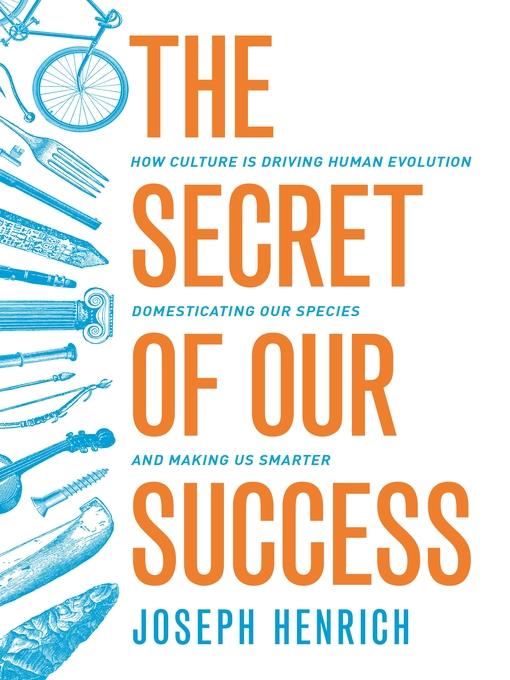
The Secret of Our Success
How Culture Is Driving Human Evolution, Domesticating Our Species, and Making Us Smarter
کتاب های مرتبط
- اطلاعات
- نقد و بررسی
- دیدگاه کاربران
نقد و بررسی

September 1, 2015
As Henrich (Evolutionary Biology/Harvard Univ.; co-author: Why Humans Cooperate, 2007, etc.) notes, we humans are big-brained but not big enough, for "our kind are not that bright, at least not innately smart enough to explain the immense success of our species." A glance at the TV would bear out that idea, but the author means the observation as a prelude to a larger construct: individually, we harbor all sorts of weaknesses, from shortness of step to smallness of thought, but collectively, we are capable of arriving at solutions to problems that would elude any single one of us. Just so, he observes in an often repeated formula, though by brain size alone we should be able to beat apes in most tasks, in an important study, our "hairy brethren...mostly tied [us] in a wide range of cognitive domains." Where we excel over other species is in social learning and behavior of related kinds; in another important study, "chimpanzees and capuchins revealed zero instances of teaching or altruistic giving," whereas the human preschoolers the apes were compared to showed all manner of teaching, learning, sharing, and giving. It may not be a Mister Rogers world out there, but Henrich's point, though belabored, is well-taken. While it is true that, left to their own devices, humans are prey to every fallacy there is, together we manage to think and muddle through. That's culture, and that's our advantage as humans. It's good ammunition for the crowdsourcing advocates among us, though Henrich's argument is more extensive than that. The writing is sometimes dense but always comprehensible, and it's refreshing to see someone argue from an unabashedly Darwinian-or post-Darwinian, anyway-point of view without trying to edge away from terms such as "natural selection" and "evolution." What does it mean to be human? Henrich's book, a pleasure for the biologically and scientifically inclined, doesn't provide the definitive answer, but it does offer plenty of material for a definition.
COPYRIGHT(2015) Kirkus Reviews, ALL RIGHTS RESERVED.

January 1, 2016
Henrich (human evolutionary biology, Harvard Univ.; coauthor, Why Humans Cooperate) posits a unique approach to understanding human behavior, not in purely evolutionary terms, but as a process of cultural evolution. His book explores culture-gene coevolution--a snowball effect that occurs when a species, such as humans, intertwines cultural adaptations with evolutionary ones. Our ability to evolve as a cultural species provided such crucial artifacts as writing, and once individuals with a propensity for cultural imitation and transmission existed, natural selection began favoring these individuals over others. Henrich argues that no other species on Earth has been able to achieve culture-gene coevolution, a condition that propels humanity forward to this day. VERDICT Recommended for readers of general social science and especially those with an interest in evolutionary aspects of cultural transmission.--Jim Hahn, Univ. Lib., Univ. of Illinois, Urbana
Copyright 2016 Library Journal, LLC Used with permission.

























دیدگاه کاربران